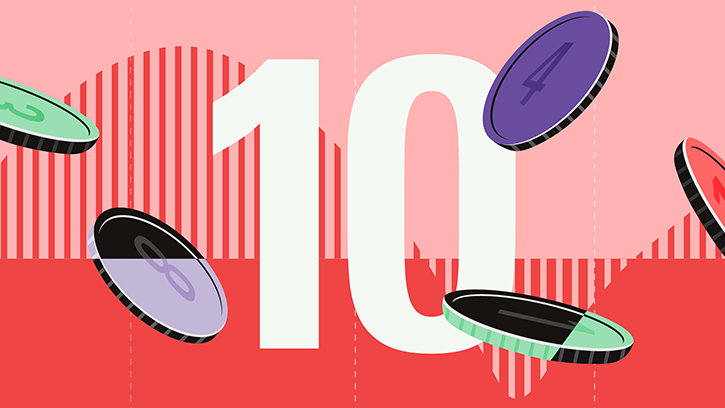
UK inflation was unchanged in August at 2.2%, according to latest figures from the Office for National Statistics (ONS). While the latest data is above the Bank of England's target of 2%, interest rates are likely to remain unchanged tomorrow.
Still, the rate of core inflation (excluding more volatile energy costs) rose from 3.3% in July to 3.6% in August, in line with FactSet forecasts.
Key Takeaways from the August Inflation Data
• Headline CPI was 2.2%
• Core inflation rose to 3.6%
• Headline CPI peaked at 11.1% in 2022
• Bank of England target is 2%
What Has Changed in UK Inflation Data?
In terms of the Consumer Price Index (CPI) components, higher airfares were offset by lower fuel prices and moderating price rises in restaurants and hotels, the ONS said. Specifically, the statistics body highlighted a spike in airfares to European destinations. While plane tickets are usually higher during Summer, the monthly increase was the second-largest since 2001.
In a note, Morningstar European market strategist Michael Field says the UK's headline rate of inflation is now under control. Nevertheless, the rise in core inflation "adds weight to the argument that the Bank of England will pause rate cuts on Thursday". This will give it room to more carefully analyse today's data, as well as the impact of August's quarter-point rate cut. Last month the Bank cut rates from 5.25% to 5%, with five members of the Bank's nine-strong monetary policy committee (MPC) backing the first cut since 2020.
Ahead of the release of the CPI data for August, financial markets—as measured by overnight index swaps—assigned a 75% chance of a rate hold and a 25% chance of a cut, although this latter percentage has increased recently. Many experts think a cut is unlikely, especially given this latest data, but this move can't entirely be ruled out.
After all, the Bank has surprised markets before. Back in December 2021, when it was making its initial efforts to contain an inflationary surge in the real economy, the MPC voted for a 0.15 percentage point increase in the base rate to 0.25%.
Bank Will Likely Hold Rates Tomorrow
Daniel Mahoney, UK economist at Handelsbanken, expects the voting pattern to shift in Thursday's decision in favour of hold as MPC members weigh up "inflation persistence."
"We therefore think that a majority of MPC members will back a freeze in rates tomorrow on the basis that they will want to see further evidence of disinflation before voting to continue the rate cutting cycle," he said in a note.
He adds that the November meeting, which will see the Bank release its monetary policy report and hold a press conference, is the next likely date for a rate cut.
There's no rate decision in October, but there is the first Labour Budget on October 30, so the new government's tax and spending plans are likely to impact on growth and inflation forecasts for next year. There's much debate about what the Budget will mean for personal finance, especially on capital gains tax and pensions.
After that, the final Bank of England meeting of the year is just before the Christmas break, on December. The focus will then move to predicting the 2025 path of rates. Interest rate cuts have been much slower than markets and experts expected at the start of the year, but that's been the same in the US and the eurozone. Global markets are now preoccupied with the size of the Federal Reserve cut on Wednesday night, and whether this will herald a rapid rate cutting cycle.
Daniel Casali, chief investment strategist at wealth manager Evelyn Partners, thinks that, although the BoE cut before the Fed, it will lag its US counterpart with coming moves:
"The broader trend of lower UK inflation should encourage the BoE to cut interest rates this year, but at a relatively slower pace compared to the US," he said in a note.
UK inflation peaked above 11% in 2022 and has fallen sharply since. Bank of England interest rates rose from 0.1% in December 2021 to 5.25% in August 2023.




























